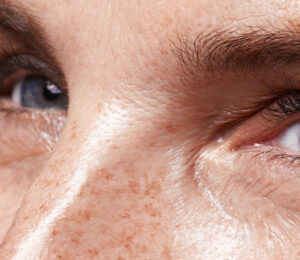Black Americans and the Mental Health Care System during COVID-19
One in four adults endures the burden of mental health disorders and that burden has become heavier lately, due to a trio of crises disproportionately affecting the Black community: the coronavirus pandemic, the worst economic downturn since the Great Depression, and the George Floyd killing in Minneapolis, which sparked weeks of protests for racial justice.
This perfect storm of controversial set-backs have American’s engaging and reflecting more than ever. Four recent polls suggest that about 15 million to 26 million people in the United States have participated in demonstrations over the death of George Floyd and others in recent weeks. These figures would make the recent protests the largest movement in the country’s history, according to interviews with scholars and crowd-counting experts.(https://www.nytimes.com/interactive/2020/07/03/us/george-floyd-protests-crowd-size.html).

In light of the pandemic and on-going fight for justice in the Black Community, The Dr. Brandt® Foundation* will use September’s #SayILoveYou campaign to highlight the urgent need to support the Black Community with culturally responsive care and is partnering with mental health provider, TalkSpace, to fund over 100,000 hours of online and on-demand professional mental health services. TalkSpace therapist, Jor-El Caraballo, shares his insights regarding mental health in the Black community during these unprecedented times.
The Complicated Relationship Between Black Americans and the Mental Health Care System
Thankfully, the conversation around mental health continues to change everyday. We’ve seen more public figures speak out about their own experiences with mental health and therapy — actress Jennifer Lewis, Jay Z, the list grows daily. Yet, Black Americans still have a complicated relationship with mental health and therapy.
Much of the relationship between Black Americans and therapy (and mental health more broadly) is rooted in a history of oppression and fear. The trauma and legacy of mistreatment of Black bodies has created a relationship of distrust between Black patients and health providers. Incidents such as the Tuskegee Experiment and the story of Henrietta Lacks are just a few examples. The story of Henrietta Lacks is relatively modern and reflects how, in an effort to advance the scientific understanding of cancer, medicine misrepresented itself, and withheld information from the Lacks’ family about the use of Henrietta’s (and their) contributions.
This deep level of distrust of the medical community continues today, as more and more research reveals just how deep racism has permeated its history. In medicine, this often means that providers don’t take the pain of Black patients seriously. Black pain is seen as less severe and is thus undertreated and often treated with more suspicion. Mental health providers have historically seen African Americans as more paranoid than their white counterparts, creating a stereotype that Black Americans are more likely to suffer from schizophrenia, when there is conflicting data on the topic.
The Ongoing Battle of Stigma
On the whole, the stigma surrounding mental health is decreasing. While “mental health,” in some communities, is still thought of as a “white” issue, there is an ongoing shift The stigma is continuously chipped away at by brave people sharing their mental health stories, celebrities using their platforms to evangelize the benefits of mental health, and the rise of mental health providers in online spaces.
Jay Z has previously talked about how his experience with therapy helped save his marriage to Beyonce. Kid Cudi famously opened up about his mental health on Jada Pinkett Smith’s show Red Table Talk. And, for better or for worse, Kanye West has also been a visible advocate for mental health treatment as well. These declarations are tremendous for the mental health of Black Americans, especially Black men. This population, many of whom have experienced great trauma, are among the least likely to access mental health services.
This is just a short list of famous Black people who have lent their voices to eradicate stigma. For every public figure that opens up, there are many more in online forums and on social media, gaining community and dishing out support.
The conversation is more plentiful than it has ever been, yet advocates face constant detractors online, who seem to want to keep Black people in the dark ages of mental health. For every progressive view on seeking treatment, is another who relies on old, internalized racist tropes that Black people don’t need emotional support and healing.
Finding the Right Fit
As a Black therapist myself, one of the most common things I hear when Black clients reach out to me falls along the lines of “It took me so long to find you!” While I’d like to think that I’m a super special and talented therapist, the truth is that my visible Blackness communicates something powerful to potential clients — that maybe they can truly be themselves, and be believed, in a therapeutic space.
I have many white colleagues who are more than capable at providing good therapy to all sorts of clients. Yet, there are also many other providers who naively think they understand the lived experiences of Black clients. This arrogance leads them to provide inadequate treatment to Black clients, misunderstanding nuance and pathologizing very normal, culturally appropriate thoughts and behaviors. Finding the right therapist as a Black client can be very challenging, even in metropolitan areas like New York City.
It has been well-established that ongoing minority stress chips away at the mental health of Black Americans. In addition, the ongoing trauma of directly experiencing or witnessing the violence enacted against Black bodies, negatively affects the psychological health of African Americans.
My hope is that as we continue to move forward, more and more Black Americans will be able to honor the reality of their emotional experiences and access more spaces for healing, whether that takes place in community forums and events or via professional therapeutic support.
TalkSpace makes mental health therapy available to more people and provides access to licensed therapists who can help those in need live a happier and healthier life. This partnership will help provide high-quality care for the Black Community, taking into account their unique cultural perspectives and needs.
In a continued effort to provide safe and accessible mental health care to all affected by the global pandemic and social movement, for the month of September, Dr. Brandt will provide discounted TalkSpace subscriptions to the community. If you are someone who would like to benefit from this, please visit our site. (starting at $28 per week)**.
You can learn more at DrBrandtSkincare.com and TalkSpace.com, and connect with Jor-El on Twitter @jorelcaraballo.
For more information, you can visit https://www.drbrandtfoundation.org/get-involved









